Shadowland Read online
Page 2
And not just because I was living on the opposite side of the continent. Not just because everywhere I looked, I saw things I’d never have seen back in New York: roadside stands advertising artichokes or pomegranates, twelve for a dollar; field after field of grapevines, twisting and twisting around wooden arbors; groves of lemon and avocado trees; lush green vegetation I couldn’t even identify. And arcing above it all, a sky so blue, so vast, that the hot-air balloon I saw floating through it looked impossibly small—like a button at the bottom of an Olympic-sized swimming pool.
There was the ocean, too, bursting so suddenly into view that at first I didn’t recognize it, thinking it was just another field. But then I noticed that this field was sparkling, reflecting the sun, flashing little Morse code SOSs at me. The light was so bright, it was hard to look at without sunglasses. But there it was, the Pacific Ocean…huge, stretching almost as wide as the sky, a living, writhing thing, pushing up against a comma-shaped strip of white beach.
Being from New York, my glimpses of ocean—at least the kind with a beach—had been few and far between. I couldn’t help gasping when I saw it. And when I gasped, everybody stopped talking—except for Sleepy, who was, of course, asleep.
“What?” my mother asked, alarmed. “What is it?”
“Nothing,” I said. I was embarrassed. Obviously, these people were used to seeing the ocean. They were going to think I was some kind of freak that I was getting so excited about it. “Just the ocean.”
“Oh,” said my mother. “Yes, isn’t it beautiful?”
Dopey went, “Good curl on those waves. Might have to hit the beach before dinner.”
“Not,” his father said, “until you’ve finished that term paper.”
“Aw, Dad!”
This prompted my mother to launch into a long and detailed account of the school to which I was being sent, the same one Sleepy, Dopey, and Doc attended. The school, named after Junipero Serra, some Spanish guy who came over in the 1700s and forced the Native Americans already living here to practice Christianity instead of their own religion, was actually a huge adobe mission that attracted twenty thousand tourists a year, or something.
I wasn’t really listening to my mother. My interest in school has always been pretty much zero. The whole reason I hadn’t been able to move out here before Christmas was that there had been no space for me at the Mission School, and I’d been forced to wait until second semester started before something opened up. I hadn’t minded—I’d gotten to live with my grandmother for a few months, which hadn’t been at all bad. My grandmother, besides being a really excellent criminal attorney, is an awesome cook.
I was still sort of distracted by the ocean, which had disappeared behind some hills. I was craning my neck, hoping for another glimpse, when it hit me. I went, “Wait a minute. When was this school built?”
“The eighteenth century,” Doc replied. “The mission system, implemented by the Franciscans under the guidelines of the Catholic Church and the Spanish government, was set up not only to Christianize the Native Americans, but also to train them to become successful tradespeople in the new Spanish society. Originally, the mission served as a—”
“Eighteenth century?” I said, leaning forward. I was wedged between Sleepy—whose head had slumped forward until it was resting on my shoulder, enabling me to tell, just by sniffing, that he used Finesse shampoo—and Dopey. Let me tell you, Gina hadn’t mentioned a thing about how much room boys take up, which, when they’re both nearly six feet tall, and in the two-hundred-pound vicinity, is a lot. “Eighteenth century?”
My mother must have heard the panic in my voice, since she turned in her seat and said soothingly, “Now, Suze, we discussed this. I told you there’s a year’s waiting list at Robert Louis Stevenson, and you told me you didn’t want to go to an all-girls school, so Sacred Heart is out, and Andy’s heard some awful stories about drug abuse and gang violence in the public schools around here—”
“Eighteenth century?” I could feel my heart starting to pound hard, as if I’d been running. “That’s like three hundred years old!”
“I don’t get it.” We were driving through the town of Carmel-by-the-Sea now, all picturesque cottages—some with thatched roofs, even—and beautiful little restaurants and art galleries. Andy had to drive carefully because the traffic was thick with people in cars with out-of-state licenses, and there weren’t any stoplights, something that, for some reason, the natives took pride in. “What’s so bad,” he wanted to know, “about the eighteenth century?”
My mother said, without any inflection in her voice whatsoever—what I call her bad-news voice, the one she uses on TV to report plane crashes and child murders, “Suze has never been very wild about old buildings.”
“Oh,” Andy said. “Then I guess she isn’t going to like the house.”
I gripped the back of his headrest. “Why?” I demanded in a tight voice. “Why am I not going to like the house?”
I saw why, of course, as soon as we pulled in. The house was huge, and impossibly pretty, with Victorian-style turrets and a widow’s walk—the whole works. My mom had had it painted blue and white and cream, and it was surrounded by big, shady pine trees, and sprawling, flowering shrubs. Three stories high, constructed entirely from wood, and not the horrible glass-and-steel or terra-cotta stuff the houses around it were made of, it was the loveliest, most tasteful house in the neighborhood.
And I didn’t want to set foot in it.
I knew when I’d agreed to move with my mom to California that I’d be in for lots of changes. The roadside artichokes, the lemon groves, the ocean…they were nothing, really. The fact was, the biggest change was going to be sharing my mom with other people. In the decade since my father had died, it had been just the two of us. And I have to admit, I sort of liked it like that. In fact, if it hadn’t been for the fact that Andy made my mom so obviously happy, I would have put my foot down and said no way to the whole moving thing.
But you couldn’t even look at them together—Andy and my mom—and not be able to tell right away that they were completely gaga over each other. And what kind of daughter would I have been if I said no way to that? So I accepted Andy, and I accepted his three sons, and I accepted the fact that I was going to have to leave behind everything I had ever known and loved—my best friend, my grandmother, bagels, SoHo—in order to give my mom the happiness she deserved.
But I hadn’t really considered the fact that, for the first time in my life, I was going to have to live in a house.
And not just any house, either, but, as Andy proudly told me as he was taking my bags from the car, and thrusting them into his sons’ arms, a nineteenth-century converted boardinghouse. Built in 1849, it had apparently had quite a little reputation in its day. Gunfights over card games and women had taken place in the front parlor. You could still see the bullet holes. In fact, Andy had framed one rather than filling it in. It was a bit morbid, he admitted, but interesting, too. He bet we were living in the only house in the Carmel hills that had a nineteenth-century bullet hole in it.
“Huh,” I said. I bet that was true.
My mother kept glancing in my direction as we climbed the many steps to the front porch. I knew she was nervous about what I was going to think. I was kind of irked at her, really, for not warning me. I guess I could understand why she hadn’t, though. If she’d told me she had bought a house that was more than a hundred years old, I wouldn’t have moved out here. I would have stayed with Grandma until it came time for me to leave for college.
Because my mom’s right: I don’t like old buildings.
Although I saw, as old buildings went, this one was really something. When you stood on the front porch, you could see all of Carmel beneath you, the village, the valley, the beach, the sea. It was a breathtaking view, one that people would—and had, judging from the fanciness of the houses around ours—pay millions for; one that I shouldn’t have resented, not in the least.
An
d yet, when my mom said, “Come on, Suze. Come see your room,” I couldn’t help shuddering a little.
The house was as beautiful inside as it was outside. All shiny maple and cheerful blues and yellows. I recognized my mom’s things, and that made me feel a little better. There was the pie-safe she and I had bought once on a weekend trip to Vermont. There were my baby pictures, hanging on the wall in the living room, right alongside Sleepy’s, Dopey’s, and Doc’s. There were my mother’s books in the built-in shelves in the den. Her plants, which she’d paid so exorbitant a price to have shipped because she’d been unable to bear parting with them, were everywhere, on wooden stands, hanging in front of the stained-glass windows, perched on top of the newel post at the end of the stairs.
But there were also things I didn’t recognize: a sleek white computer sitting on the desk where my mother used to write out checks to pay the bills; a wide-screen TV incongruously tucked into a fireplace in the den, to which shift-sticks were wired for some sort of video game; surfboards leaning up against the wall by the door to the garage; a huge, slobbery dog, who seemed to think I was harboring food in my pockets since he kept thrusting his big wet nose into them.
These all seemed like obtrusively masculine things, foreign things in the life my mother and I had carved out for ourselves. They were going to take some getting used to.
My room was upstairs, just above the roof of the front porch. My mother had been going on nervously for almost the entire trip from the airport about the window seat Andy had installed in the bay window. The bay windows looked out over the same view as the porch, that sweeping vista that incorporated all of the peninsula. It was sweet of them, really, to give me such a nice room, the room with the best view in the whole house.
And when I saw how much trouble they’d gone to, to make the room feel like home to me—or at least to some excessively feminine, phantom girl…not me. I had never been the glass-topped dressing table, princess phone type—how Andy had put cream-colored wallpaper, dotted with blue forget-me-nots, all along the top of the intricate white wainscoting that lined the walls; how the same wallpaper covered the walls of my own personal adjoining bathroom; how they’d bought me a new bed—a four-poster with a lace canopy, the kind my mother had always wanted for me and had evidently been unable to resist—I felt bad about how I’d acted in the car. I really did. I thought to myself as I walked around the room, Okay, this isn’t so bad. So far you’re in the clear. Maybe it’ll be all right, maybe no one was ever unhappy in this house, maybe all those people who got shot deserved it….
Until I turned toward the bay window, and saw that someone was already sitting on the window seat Andy had so lovingly made for me.
Someone who was not related to me, or to Sleepy, Dopey, or Doc.
I turned toward Andy, to see if he’d noticed the intruder. He hadn’t, even though he was right there, right in front of his face.
My mother hadn’t seen him, either. All she saw was my face. I guess my expression must not have been the most pleasant, since her own fell, and she said with a sad sigh, “Oh, Suze. Not again.”
Chapter
Two
I guess I should explain. I’m not exactly your typical sixteen-year-old girl.
Oh, I seem normal enough, I guess. I don’t do drugs, or drink, or smoke—well, okay, except for that one time when Sleepy caught me. I don’t have anything pierced, except my ears, and only once on each earlobe. I don’t have any tattoos. I’ve never dyed my hair. Except for my boots and leather jacket, I don’t wear an excessive amount of black. I don’t even wear dark fingernail polish. All in all, I am a pretty normal, everyday, American teenage girl.
Except, of course, for the fact that I can talk to the dead.
I probably shouldn’t put it that way. I should probably say that the dead talk to me. I mean, I don’t go around initiating these conversations. In fact, I try to avoid the whole thing as much as possible.
It’s just that sometimes they won’t let me.
The ghosts, I mean.
I don’t think I’m crazy. At least, not any crazier than your average sixteen-year-old. I guess I might seem crazy to some people. Certainly the majority of kids in my old neighborhood thought I was. Nuts, I mean. I’ve had the school counselors sicced on me more than once. Sometimes I even think it might be simpler just to let them lock me up.
But even on the ninth floor of Bellevue—which is where they lock up the crazy people in New York—I probably wouldn’t be safe from the ghosts. They’d find me.
They always do.
I remember my first. I remember it as clearly as any of my other memories of that time, which is to say, not very well, since I was about two years old. I guess I remember it about as well as I remember taking a mouse away from our cat and cradling it in my arms until my horrified mother took it away.
Hey, I was two, okay? I didn’t know then that mice were something to be afraid of. Ghosts, either, for that matter. That’s why, fourteen years later, neither of them frighten me. Startle me, maybe, sometimes. Annoy me, a lot. But frighten me?
Never.
The ghost, like the mouse, was little, gray, and helpless. To this day, I don’t know who she was. I spoke to her, some baby gibberish that she didn’t understand. Ghosts can’t understand two-year-olds any better than anybody else. She just looked at me sadly from the top of the stairs of our apartment building. I guess I felt sorry for her, the way I had for the mouse, and wanted to help her. Only I didn’t know how. So I did what any uncertain two-year-old would do. I ran for my mother.
That was when I learned my first lesson concerning ghosts: only I can see them.
Well, obviously, other people can see them. How else would we have haunted houses and ghost stories and Unsolved Mysteries and all of that? But there’s a difference. Most people who see ghosts only see one. I see all ghosts.
All of them. Anybody. Anybody who has died and for whatever reason is hanging around on Earth instead of going wherever it is he or she is supposed to go, I can see.
And let me tell you, that is a lot of ghosts.
I found out the same day that I saw my first ghost that most people—even my own mother—can’t see them at all. Neither can anyone else I have ever met. At least, no one who’ll admit it.
Which brings us to the second thing I learned about ghosts that day fourteen years ago: It’s really better, in the long run, not to mention that you’ve seen one. Or, as in my case, any.
I’m not saying my mother figured out that it was a ghost I was pointing to and gibbering about that afternoon when I was two. I doubt she knew it. She probably thought I was trying to tell her something about the mouse, which she had confiscated from me earlier that morning. But she looked gamely up the stairs and nodded and said, “Uh-huh. Listen, Suze. What do you want for lunch today? Grilled cheese? Or tuna fish?”
I hadn’t exactly expected a reaction similar to the one the mouse had gotten—my mother, who’d been cradling a neighbor’s newborn at the time, had let out a glorious shriek at the sight of the mouse in my arms, and had screamed even harder at my proud announcement, “Look, Mommy. Now I’ve got a baby, too,” which I realize now she couldn’t have understood, since she didn’t get it about the ghost.
But I had expected at least an acknowledgment of the thing floating at the top of the stairs. I was given explanations for virtually everything else I encountered on a daily basis, from fire hydrants to electrical outlets. Why not the thing at the top of the stairs?
But as I sat munching my grilled cheese a little later, I realized that the reason my mother had offered no explanation for the gray thing was that she hadn’t been able to see it. To her, it wasn’t there.
At two years old, this didn’t seem unreasonable to me. It just seemed, at the time, like another thing that separated children from adults: Children had to eat all their vegetables. Adults did not. Children could ride the merry-go-round in the park. Adults could not. Children could see the gray things. Adults
could not.
And even though I was only two years old, I understood that the little gray thing at the top of the stairs was not something to be discussed. Not with anybody. Not ever.
And I never did. I never told anyone about my first ghost, nor did I ever discuss with anyone the hundreds of other ghosts I encountered over the course of the next few years. What was there to discuss, really? I saw them. They spoke to me. For the most part, I didn’t understand what they were saying, what they wanted, and they usually went away. End of story.
It probably would have gone on like that indefinitely if my father hadn’t suddenly up and died.
Really. Just like that. One minute he was there, cooking and making jokes in the kitchen like he’d always done, and the next day he was gone.
And, people kept assuring me all through the week following his death—which I spent on the stoop in front of our building, waiting for my dad to come home—he was never coming back.
I, of course, didn’t believe their assurances. Why should I? My dad, not coming back? Were they nuts? Sure, he might have been dead. I got that part. But he was definitely coming back. Who was going to help me with my math homework? Who was going to wake up early with me on Saturday mornings, and make French toast and watch cartoons? Who was going to teach me to drive, like he’d promised, when I turned sixteen? My dad might have been dead, but I was definitely going to see him again. I saw lots of dead people on a daily basis. Why shouldn’t I see my dad?
It turned out I was right. Oh, my dad was dead. No doubt about that. He’d died of a massive coronary. My mom had his body cremated, and she put his ashes in an antique German beer tankard. You know, that kind with a lid. My dad had always really liked beer. She put the tankard on a shelf, high up, where the cat couldn’t knock it over, and sometimes, when she didn’t think I was around, I caught her talking to it.

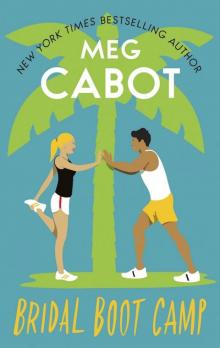 Bridal Boot Camp
Bridal Boot Camp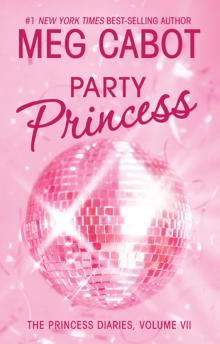 Party Princess
Party Princess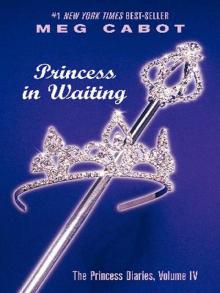 Princess in Waiting
Princess in Waiting Being Nikki
Being Nikki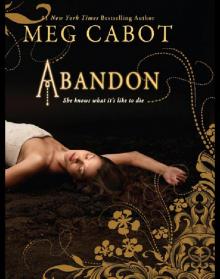 Abandon
Abandon Princess on the Brink
Princess on the Brink Darkest Hour
Darkest Hour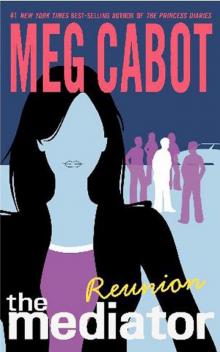 Reunion
Reunion Princess in Pink
Princess in Pink Sweet Sixteen Princess
Sweet Sixteen Princess The Princess Diaries
The Princess Diaries Airhead
Airhead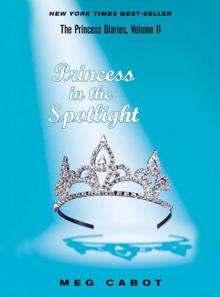 Princess in the Spotlight
Princess in the Spotlight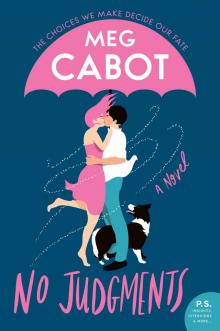 No Judgments
No Judgments All-American Girl
All-American Girl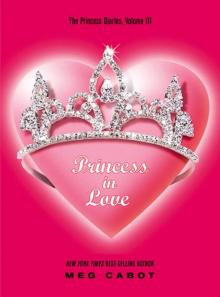 Princess in Love
Princess in Love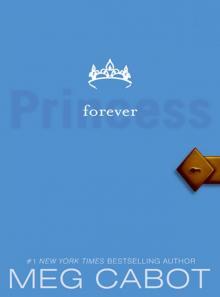 Forever Princess
Forever Princess Haunted
Haunted Shadowland
Shadowland Twilight
Twilight Princess Mia
Princess Mia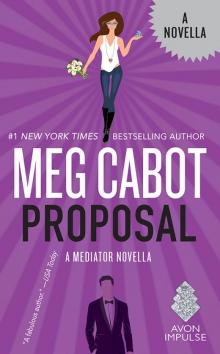 Proposal
Proposal Remembrance
Remembrance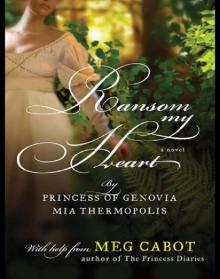 Ransom My Heart
Ransom My Heart Underworld
Underworld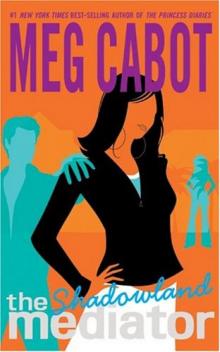 Shadowland tm-1
Shadowland tm-1 Size 14 Is Not Fat Either
Size 14 Is Not Fat Either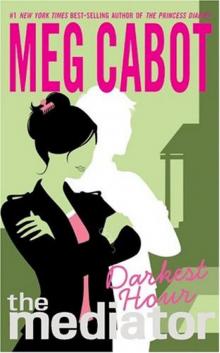 Darkest Hour tm-4
Darkest Hour tm-4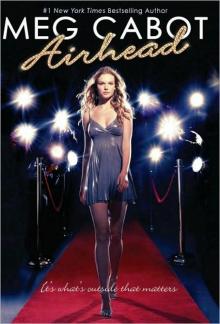 Airhead a-1
Airhead a-1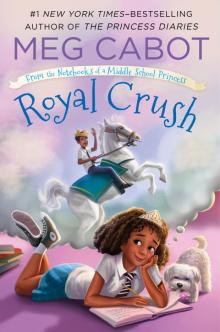 Royal Crush
Royal Crush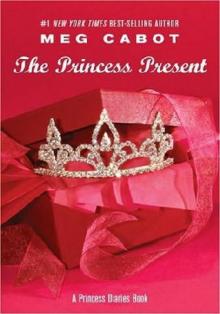 The Princess Present (princess diaries)
The Princess Present (princess diaries)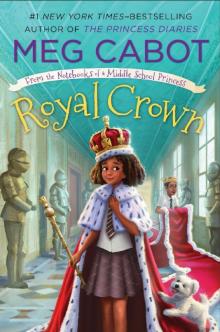 Royal Crown
Royal Crown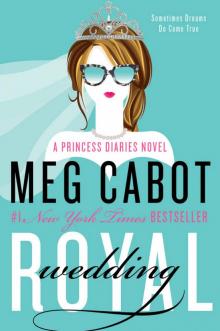 Royal Wedding: A Princess Diaries Novel (The Princess Diaries Book 11)
Royal Wedding: A Princess Diaries Novel (The Princess Diaries Book 11)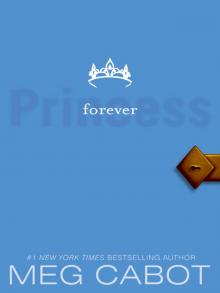 Princess Diaries, Vol. X: Forever Princess
Princess Diaries, Vol. X: Forever Princess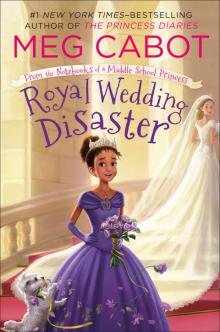 Royal Wedding Disaster
Royal Wedding Disaster Allie Finkle's Rules for Girls: Glitter Girls and the Great Fake Out
Allie Finkle's Rules for Girls: Glitter Girls and the Great Fake Out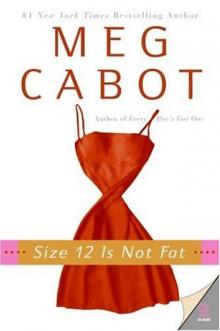 Size 12 Is Not Fat hwm-1
Size 12 Is Not Fat hwm-1 Princess on the Brink pd-8
Princess on the Brink pd-8 The New Girl
The New Girl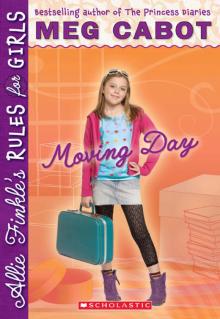 Allie Finkle's Rules for Girls: Moving Day
Allie Finkle's Rules for Girls: Moving Day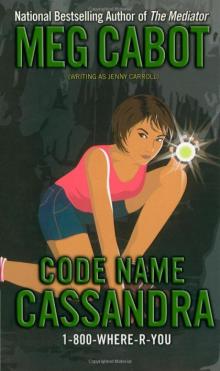 Code Name Cassandra
Code Name Cassandra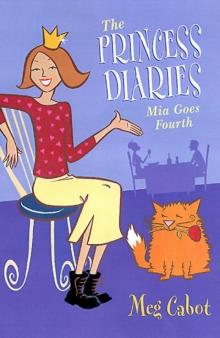 Mia Goes Fourth pd-4
Mia Goes Fourth pd-4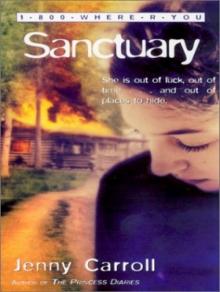 Sanctuary 1-4
Sanctuary 1-4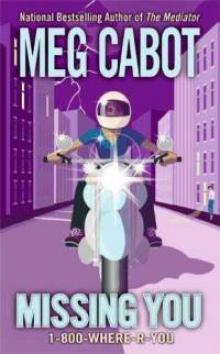 Missing You 1-5
Missing You 1-5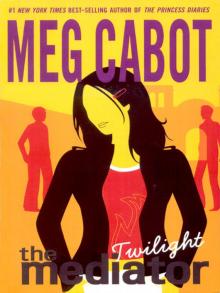 The Mediator 6: Twilight
The Mediator 6: Twilight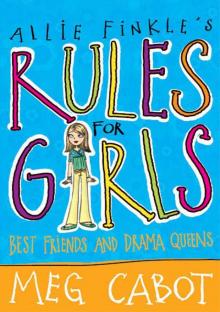 Allie Finkle's Rules for Girls: Best Friends and Drama Queens
Allie Finkle's Rules for Girls: Best Friends and Drama Queens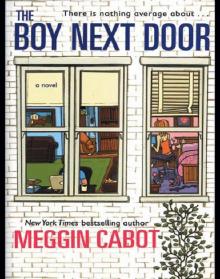 The Boy Next Door
The Boy Next Door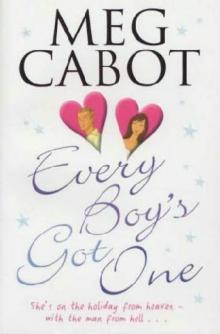 Every Boy's Got One
Every Boy's Got One Princess Mia pd-9
Princess Mia pd-9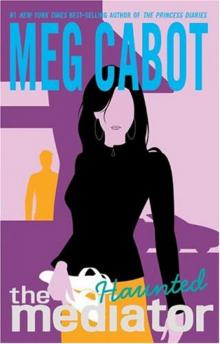 Haunted tm-5
Haunted tm-5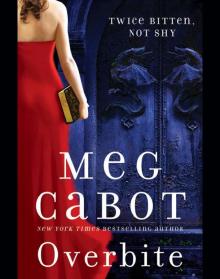 Overbite
Overbite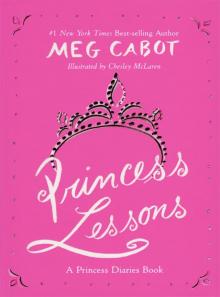 Princess Lessons
Princess Lessons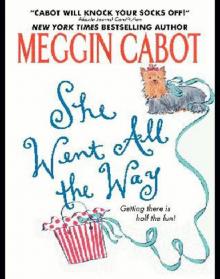 She Went All the Way
She Went All the Way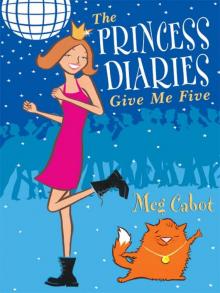 Give Me Five pd-5
Give Me Five pd-5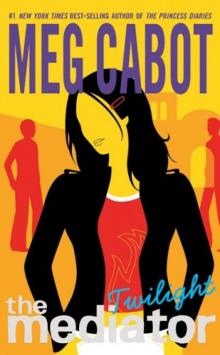 Twilight tm-6
Twilight tm-6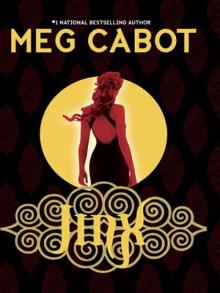 Jinx
Jinx Runaway (Airhead #3)
Runaway (Airhead #3)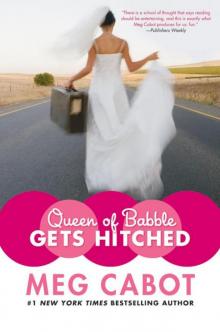 Queen of Babble Gets Hitched qob-3
Queen of Babble Gets Hitched qob-3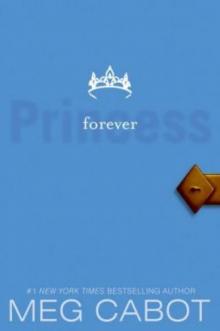 Forever Princess pd-10
Forever Princess pd-10 Queen of Babble
Queen of Babble Boy Meets Girl b-3
Boy Meets Girl b-3 Pants on Fire
Pants on Fire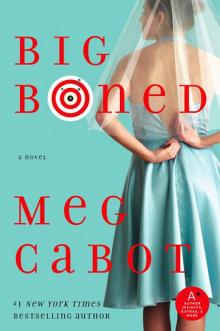 Big Boned ху-3
Big Boned ху-3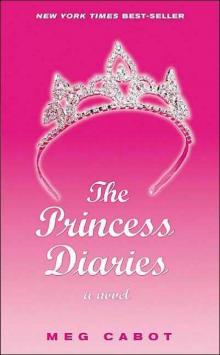 Princess' Diaries pd-1
Princess' Diaries pd-1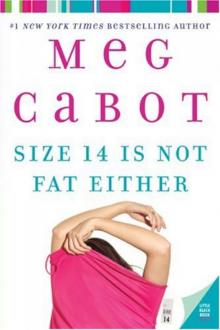 Size 14 Is Not Fat Either hwm-2
Size 14 Is Not Fat Either hwm-2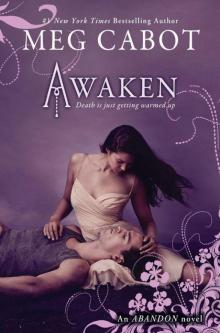 Awaken a-3
Awaken a-3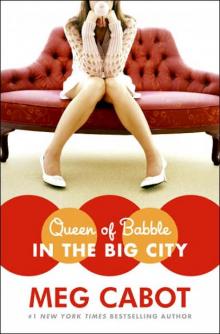 Queen Of Babble: In The Big City qob-2
Queen Of Babble: In The Big City qob-2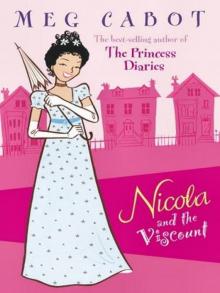 Nicola and the Viscount
Nicola and the Viscount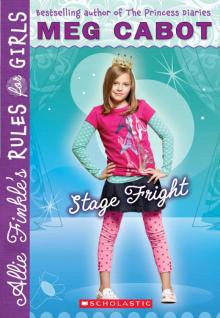 Allie Finkle's Rules for Girls: Stage Fright
Allie Finkle's Rules for Girls: Stage Fright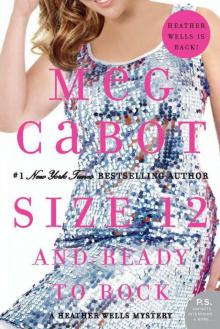 Size 12 and Ready to Rock
Size 12 and Ready to Rock Perfect Princess
Perfect Princess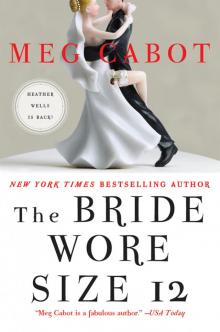 The Bride Wore Size 12
The Bride Wore Size 12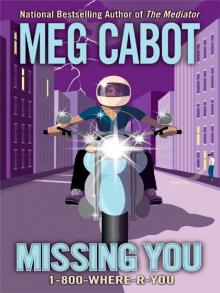 1-800-Where-R-You: Missing You
1-800-Where-R-You: Missing You How to Be Popular
How to Be Popular Queen of Babble Bundle with Bonus Material
Queen of Babble Bundle with Bonus Material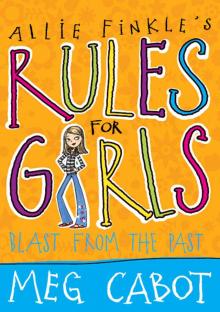 Allie Finkle's Rules for Girls: Blast from the Past
Allie Finkle's Rules for Girls: Blast from the Past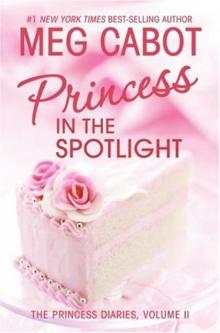 Princess in the Spotlight pd-2
Princess in the Spotlight pd-2 Ready or Not
Ready or Not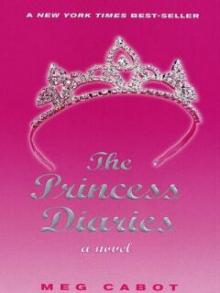 The Princess Diaries I
The Princess Diaries I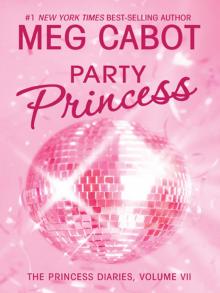 Party Princess pd-7
Party Princess pd-7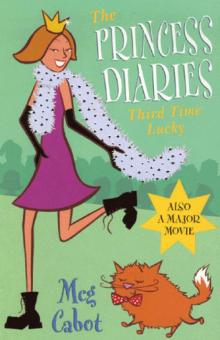 Third Time Lucky pd-3
Third Time Lucky pd-3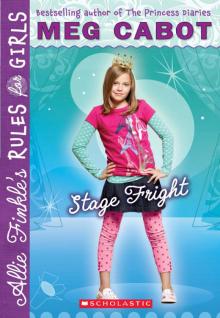 Stage Fright
Stage Fright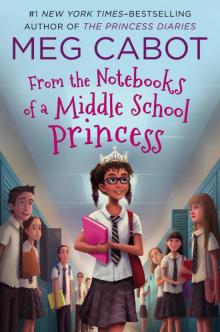 From the Notebooks of a Middle School Princess
From the Notebooks of a Middle School Princess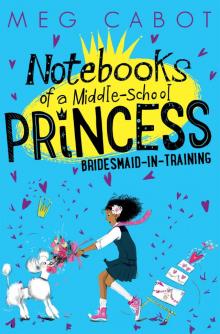 Notebooks of a Middle-School Princess Bridesmaid-in-Training
Notebooks of a Middle-School Princess Bridesmaid-in-Training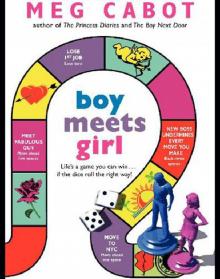 Boy Meets Girl
Boy Meets Girl Missing You
Missing You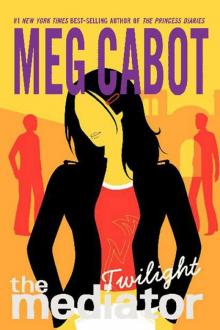 The Twilight
The Twilight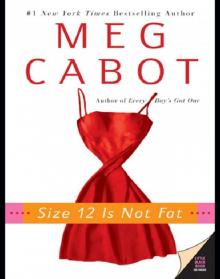 Size 12 Is Not Fat
Size 12 Is Not Fat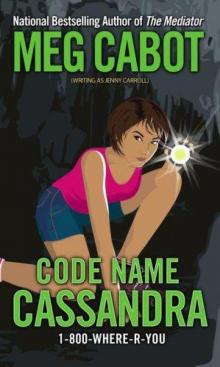 Code Name Cassandra 1-2
Code Name Cassandra 1-2 Valentine Princess
Valentine Princess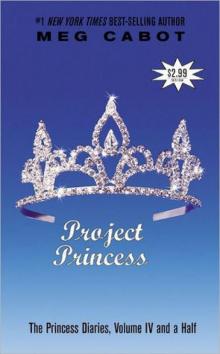 Project Princess
Project Princess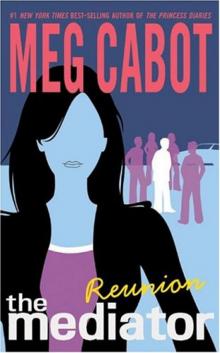 Reunion tm-3
Reunion tm-3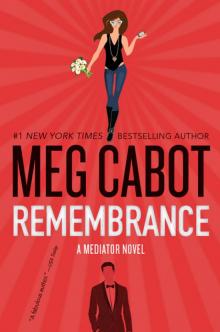 Remembrance: A Mediator Novel
Remembrance: A Mediator Novel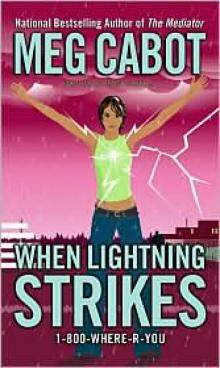 When Lightning Strikes 1-1
When Lightning Strikes 1-1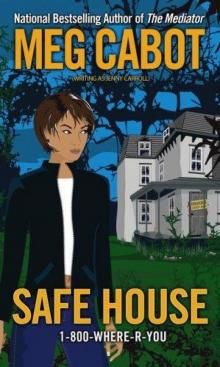 Safe House 1-3
Safe House 1-3 Teen Idol
Teen Idol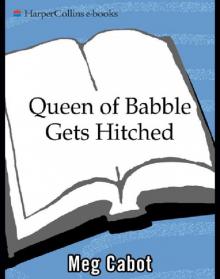 Queen of Babble Gets Hitched
Queen of Babble Gets Hitched Glitter Girls and the Great Fake Out
Glitter Girls and the Great Fake Out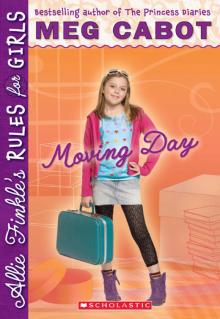 Moving Day
Moving Day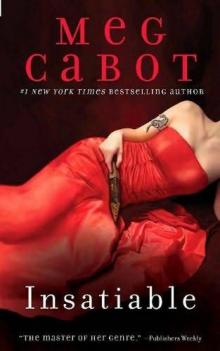 Insatiable
Insatiable All American Girl
All American Girl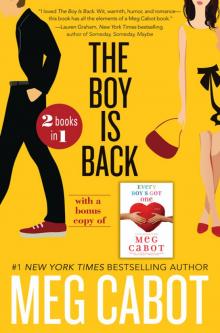 The Boy Is Back + Every Boy's Got One Bundle
The Boy Is Back + Every Boy's Got One Bundle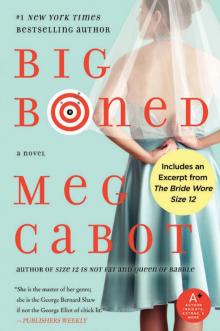 Big Boned
Big Boned Awaken
Awaken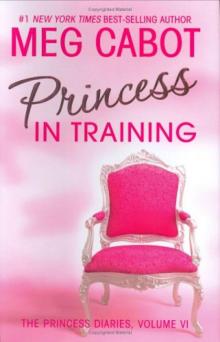 Princess in Training pd-6
Princess in Training pd-6